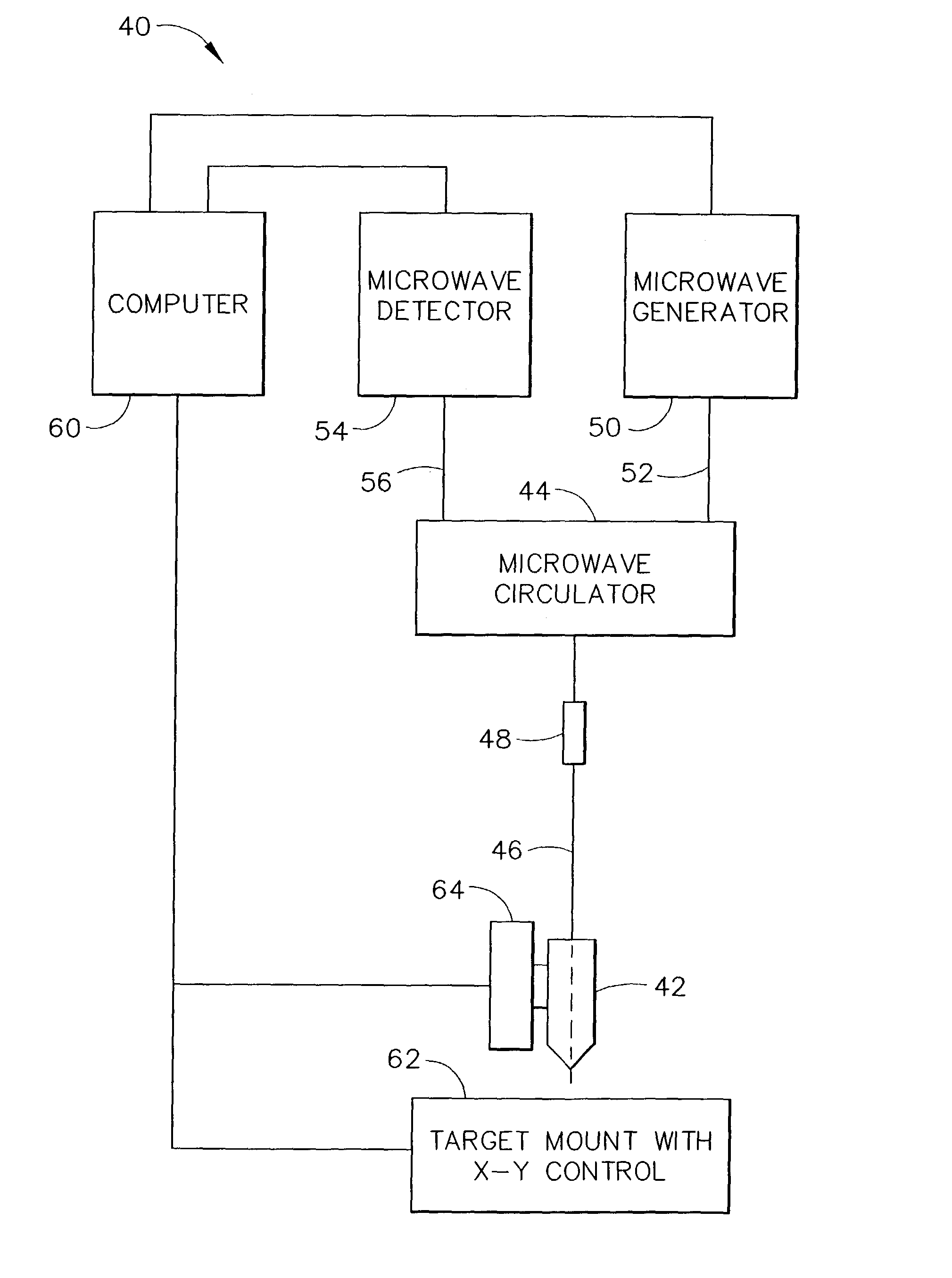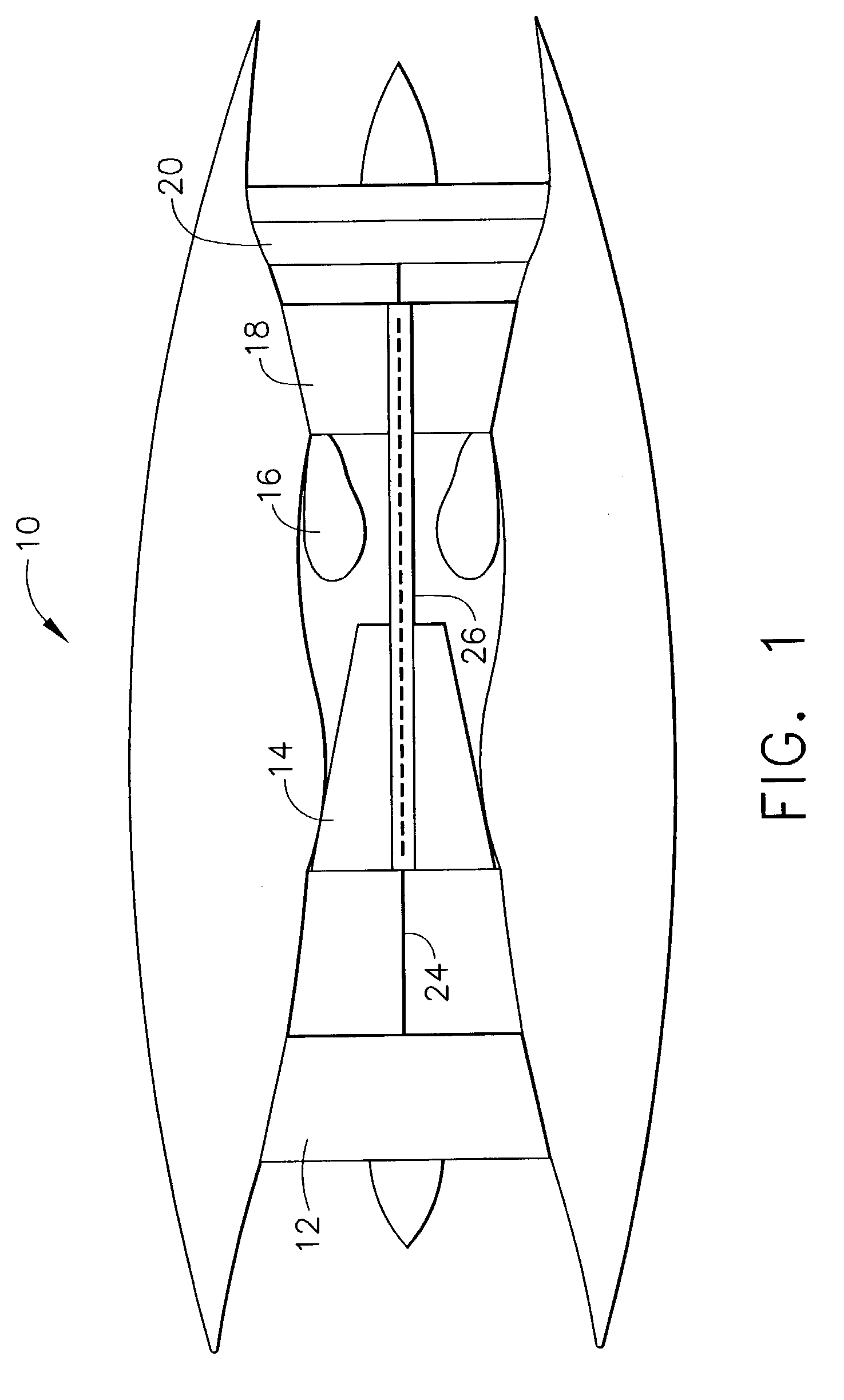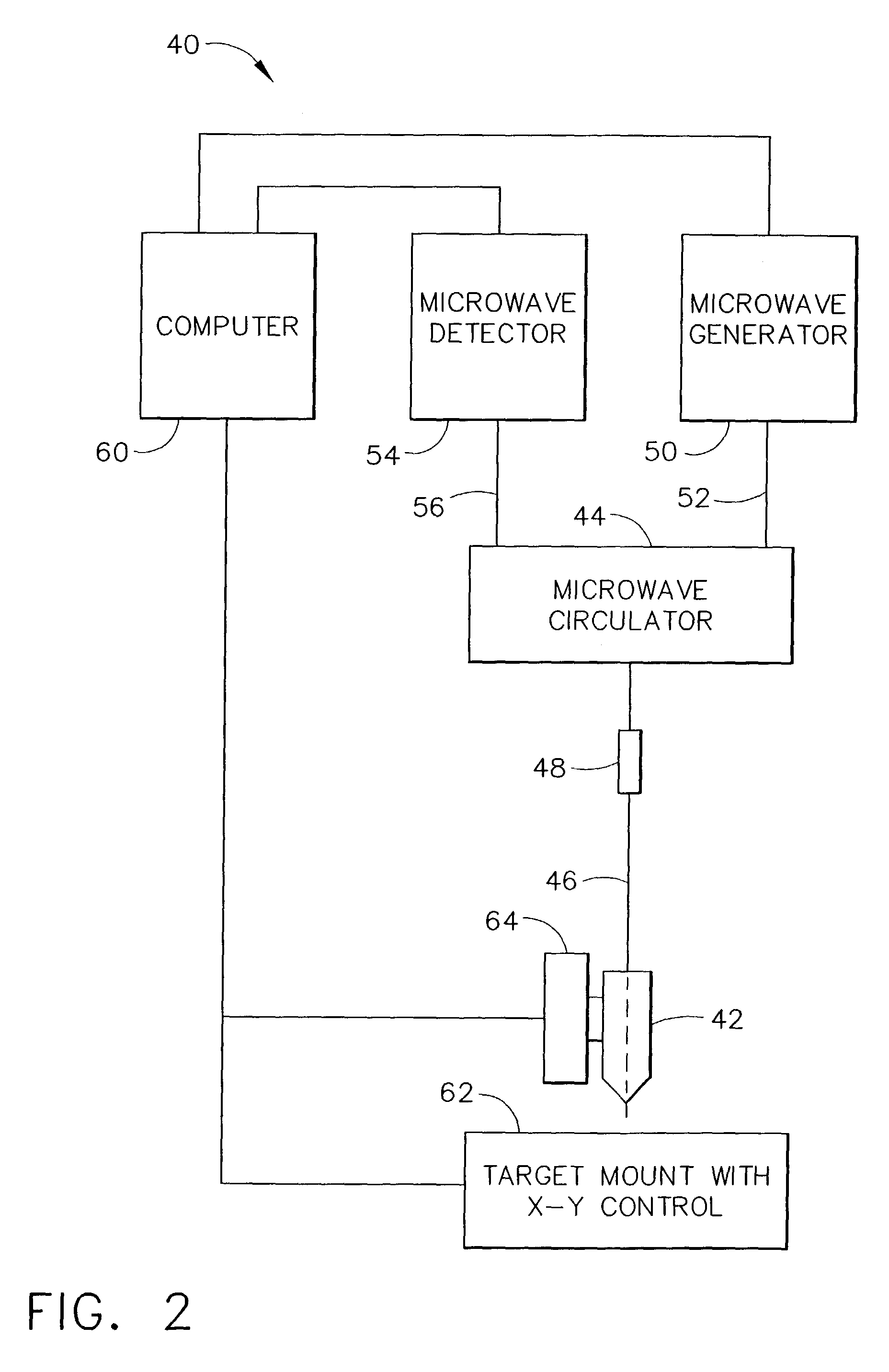Non-destructive determination of machining induced surface defects on metal parts
a technology of machining induced defects and metal parts, which is applied in the direction of mechanical measurement arrangements, mechanical roughness/irregularity measurements, instruments, etc., can solve the problems of reducing the life of low cycle fatigue (lcf), and affecting the quality of machining
- Summary
- Abstract
- Description
- Claims
- Application Information
AI Technical Summary
Benefits of technology
Problems solved by technology
Method used
Image
Examples
Embodiment Construction
[0012]Non-destructive examination of machining induced surface defects on gas turbine engine components using evanescent microwave microscopy is described in detail below. Evanescent microwave microscopy is used for imaging scans of the surface of turbine components with resolutions of λ / 1000 or better, where λ is the wavelength of microwave energy in free space. Evanescent microwaves are capable of high resolution imaging using “near fields”. This permits non-destructive imaging of materials that are sensitive to near field microstructure. The evanescent microwave probe measures frequency as it traverses a surface. The frequency is sensitive to probe distance, conductivity, dielectric, and changes of the near surface material. The cold worked surface of a machined metal exhibits a change in conductivity due to a change in grain size or localized melting at the near surface.
[0013]In evanescent microwave field imaging, the fields are intentionally confined or restricted to regions th...
PUM
 Login to View More
Login to View More Abstract
Description
Claims
Application Information
 Login to View More
Login to View More - R&D
- Intellectual Property
- Life Sciences
- Materials
- Tech Scout
- Unparalleled Data Quality
- Higher Quality Content
- 60% Fewer Hallucinations
Browse by: Latest US Patents, China's latest patents, Technical Efficacy Thesaurus, Application Domain, Technology Topic, Popular Technical Reports.
© 2025 PatSnap. All rights reserved.Legal|Privacy policy|Modern Slavery Act Transparency Statement|Sitemap|About US| Contact US: help@patsnap.com



